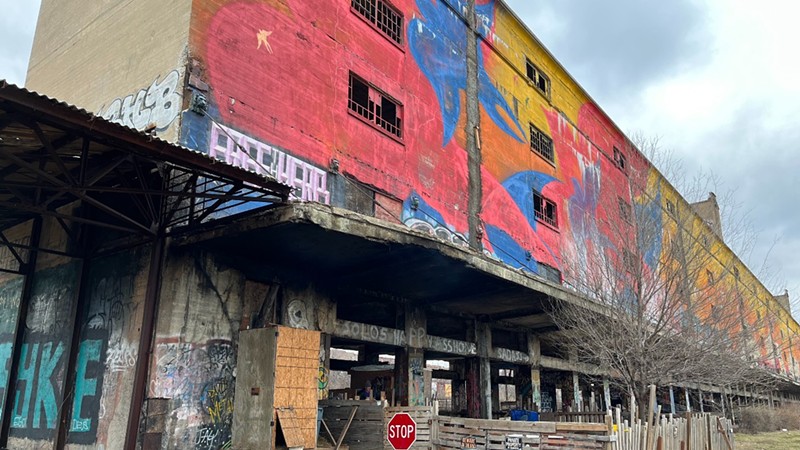St. Louis man living in Cotton Belt building sues over new state law | St. Louis Metro News | Saint Louis
A federal lawsuit filed by seven homeless people seeks to block enforcement of a new Missouri law banning sleeping and camping on state-owned land.
On Dec. 21, seven currently homeless people filed a lawsuit against Missouri’s attorney general, claiming the law, which took effect on Sunday, is both vaguely worded and essentially criminalizes homelessness.
Lawyer Stephanie Lummus, of the Cook Group, is representing the seven plaintiffs. After filing the lawsuit, she asked the court for a temporary restraining order to stop the law from going into effect, but it was denied. She says that in the coming weeks she will ask Judge Matthew T. Schelp to issue a temporary injunction, which would suspend enforcement while the lawsuit progresses through the courts. Ultimately, she hopes the law will be declared unconstitutional.
The new law prohibits “unauthorized sleeping, camping, or long-term shelter construction” on state-owned land, such as highway overpasses or state parks. But Lummus says the law provides no explanation of what is considered “unauthorized”.
Lummus says she hopes the lawsuit will eventually be certified as a class action.
“You have constitutional issues at stake,” she said. “You have people whose freedom is subject to disappearing. You can be thrown into a cage for being poor.”
The law was part of a bill signed by Governor Mike Parson last June. Although it was introduced as a seven-page bill focusing largely on the county’s financial statements, by the time the bill was passed it had turned into a 64 pages giant on different political subdivisions, including homelessness laws championed by Rep. Bruce DeGroot (R-Chesterfield) and Sen. Holly Rehder (R-Sikeston).
Anyone caught breaking it could face a class C misdemeanor charge – a felony punishable by a fine of up to $750 and 15 days in jail. Any municipality caught failing to enforce the law could be sued by the Missouri Attorney General. And any municipality with a homelessness rate above the state average within a year of the bill’s passage could lose state funding until it fixes the problem.
DeGroot previously said in an interview with the RFT that he thinks his proposal will help the homeless.
He and Rehder believed that instead of tackling the problem through permanent housing, Missouri should direct public funding toward mental health services and short-term housing.
Degroot said the federal government’s Housing First model “just doesn’t work.” Prioritizing short-term housing was a cheaper and possibly safer option for people without homes, he said.
In addition to banning “unauthorized” camping and sleeping, the new law redirects public funds otherwise used for the construction of permanent housing for homeless people towards mental health treatment and other services, including short-term accommodation.
Lummus’ lawsuit is not the first to challenge the new law. In September, three Missourians represented by Legal Services of Eastern Missouri and Public Citizen Litigation Group asked a judge to stop the bill from taking effect. The lawsuit claimed the law violated Missouri’s constitutional requirement that the legislation be confined to a single topic.
One of the plaintiffs represented by Lummus, Ronald Benson, a 63-year-old military veteran, says he lived in the old Cotton Belt building near the Mississippi River for four years with his dog, Rebel. “I made a nice little house out of it,” Benson says of his living space at the south end of the mural-adorned building that was once a goods depot but has long since been abandoned.
“One of the bedrooms is like a small apartment,” he says. “It’s 13 by 16, big enough for one person.”
It’s cold, Benson says, but with the help of a small propane heater and an old wood stove, he pulls through.
Benson says he first moved into the building with permission from the people who owned it at the time, but he’s had trouble getting in touch with the building’s current owner, Justine Petersen Properties. It took him two years “on and off” to transform the space into what it is today.
Benson signed the lawsuit as a plaintiff because he has stayed on state-owned land in the past and likely will in the future.
“Of course homelessness creates problems,” he says. “But it’s nothing like they have to round us up like a herd of cattle, which is pretty much how they treat us.”
We appreciate advice and feedback. Email the author at [email protected]
or follow us on Twitter at @RyanWKrull.
Follow us: Google News | NewsBreak | Reddit | instagram | Facebook | Twitter



Comments are closed.